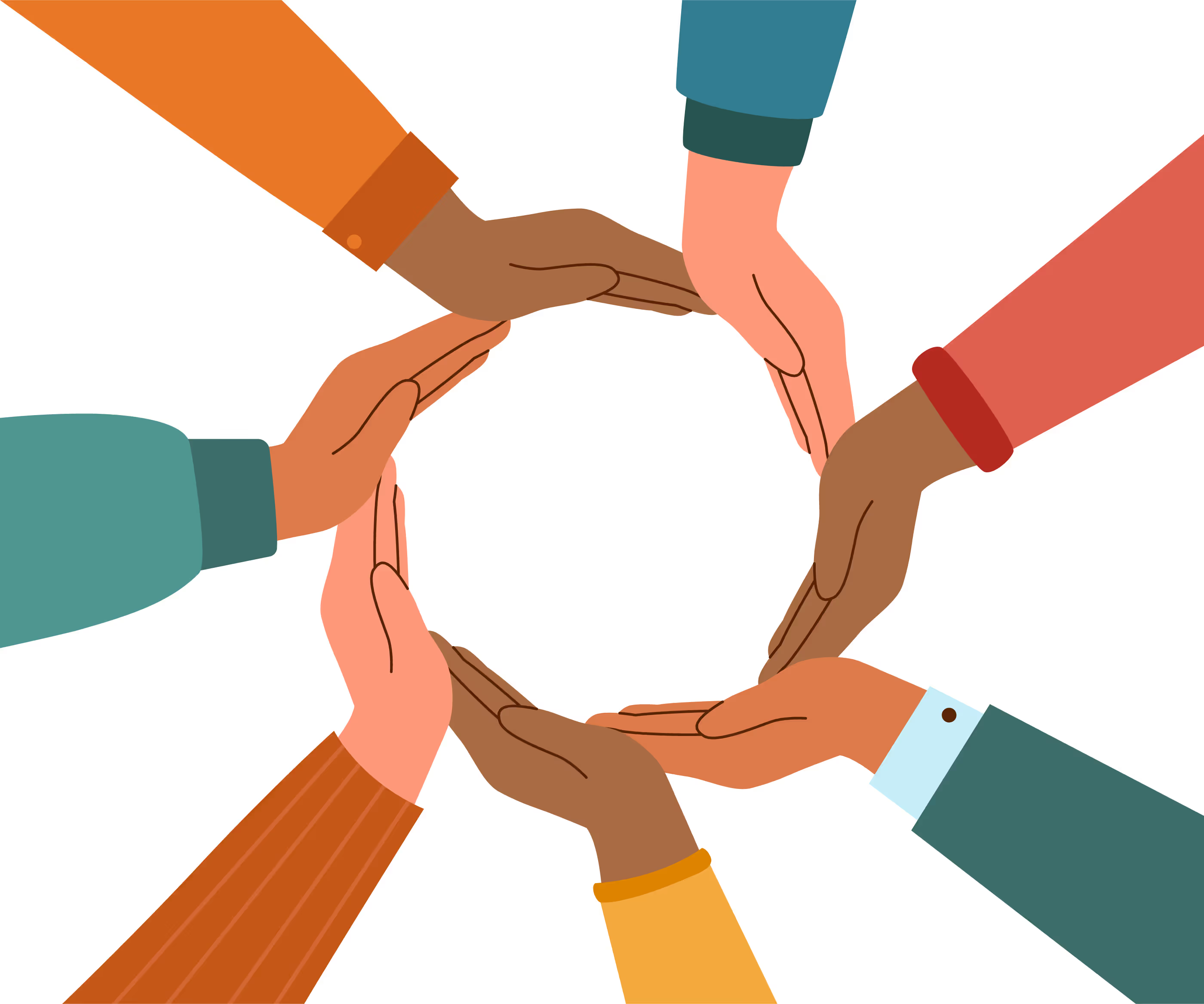How we built and scaled democratic workplace systems that actually work
After six years as a worker cooperative in the digital agency space, Yalla Cooperative has cracked the code on something many consider impossible: building a truly democratic workplace that operates efficiently, scales effectively, and keeps everyone engaged.
Many assume that worker cooperatives with their emphasis on democratic decision making and shared ownership are chaotic, slow, or idealistic experiments that can't compete in the fast-paced digital world. Our experience tells a different story. Here's the internal blueprint we've developed to make employee ownership and professional excellence work together.
Why We Chose the Cooperative Path
Traditional agencies often struggle with high turnover, disengaged employees, and the constant tension between worker wellbeing and profit maximization. We wanted to build something different: a democratic workplace where everyone has a real stake in success.
The Internal Transformation
The shift to employee ownership fundamentally changed how we work together:
- Shared Investment: Everyone has skin in the game beyond just a paycheck
- Collective Problem-Solving: Challenges become team challenges, not management problems
- Long-term Thinking: No pressure for short-term profit maximization at the expense of team wellbeing
- Authentic Engagement: Democratic participation isn't a program; it's how we operate daily
Our Sociocratic Circle Structure
The breakthrough for us came when we moved beyond simple consensus to sociocratic democratic principles. Instead of trying to make every decision as a full team, we organized into specialised circles that handle decisions within their expertise.
How Our Circles Work
- Design Circle: Makes decisions related to creative direction, brand strategy, and visual design standards
- Development Circle: Handles technical architecture decisions, development methodologies, and technology choices
- Projects Circle: Focuses on Project management processes and best practicies.
- Operations Circle: Manages internal processes, resource allocation, and workflow optimisation
- General member Circle: Addresses company-wide policies, major strategic decisions, and cross-circle coordination
Consent-Based Decision Making
Each circle operates with consent-based decision making, where we move forward with decisions when no one has critical concerns that would prevent implementation. Team members can raise concerns and propose modifications, but we don't need everyone to love the solution—just no one with critical objections.
This isn't consensus (where everyone has to agree), but consent (where no one has critical concerns that would block moving forward). If someone has concerns, we work together to address them or modify the proposal until any critical objections are resolved.
This approach has proven much faster than traditional consensus while maintaining the democratic principles that matter to us. Most importantly, it prevents decision paralysis while ensuring everyone's voice is heard and critical concerns are addressed.
Internal Leadership Development
One of the biggest misconceptions about worker cooperatives is that they lack clear leadership or accountability. In reality, we've developed more comprehensive internal leadership development than most traditional agencies.
Our Project Role Structure
For each client project, we have developed a strong communication framework and clear project roles and responsibilities that democratically distribute leadership:
- Project Manager: Manages the team, oversees the project timeline, and serves as the primary client contact point
- Technical Leader: Responsible for managing the tech team and technical architecture decisions
- UX Leader: Carries out the user experience strategy and research phases
- Design Lead: Leads the overall design vision and creative direction
- Quality Assurance Lead: Ensures all deliverables meet our standards before client delivery
- Ongoing Support Lead: Manages the ongoing maintenance and client support
Rotating Leadership Opportunities
These roles rotate based on expertise, interest, and project requirements. This rotation system means:
- Everyone develops leadership skills across different areas
- No one gets stuck in a single role or becomes irreplaceable
- We build deep bench strength across all functions
- Leadership development becomes everyone's responsibility
- Knowledge transfer happens naturally through role transitions
Financial Literacy and Shared Ownership
Unlike traditional agencies where financial information is closely guarded, our democratic approach includes full financial transparency:
- Monthly financial reviews with the entire team
- Open discussion of pricing strategies and profit margins
- Collective decision-making on major financial commitments
- Shared understanding of how our work creates value
- Equal participation in both risks and rewards
Building the Internal Foundation: Advice for Others
If you are planning to convert your organisation to
- Start Practicing Democracy Now: Begin making decisions collectively before changing ownership structure
- Educate Everyone: Learn about different cooperative models and governance systems together
- Build Trust First: The success depends on relationships and shared commitment
- Document Your Process: Create clear procedures as you develop them
- Plan for the Long Term: Allow 1-2 years for a full internal cultural transition
After six years, we know that democratic workplaces create more engaged teams, more diverse skills, more thoughtful decision-making, and more sustainable cultures than any traditional agency structure we've experienced.
Building internal democratic systems requires intention, patience, and continuous learning. But the results for both individual team members and collective performance make the effort worthwhile.At Yalla Cooperative, we've built internal systems that work: democratic processes that are efficient, leadership development that's inclusive, and a culture that sustains itself through shared ownership and collective care.


